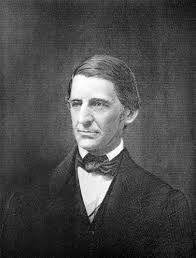|
How can a contemplative critique on religious teachings, published in 1841, apply to modern, tech entrepreneurship? What if the essay conveys transcendental knowledge, individualism, and Indian religious principles? Okay, this is starting to sound like Steve Jobs’ wilderness years… Do you want to see where it goes?
Here are three lessons in entrepreneurship from Compensation, an essay by Ralph Waldo Emerson: Do. (Startup Commons’ mantra in case you were wondering) “Do the thing, and you shall have the power.” This quote from Ralph Waldo Emerson’s Compensation sums up entrepreneurial existence. Anyone can conceive a grand idea, but the people who manage to execute on their visions are few and far between. Furthermore, all of the rewards and accolades go to the doers, not the theorizers and critics on the sidelines. Whether you are looking to build a company or cultivate a startup ecosystem, there is only so much theorizing and planning you can do. At a certain point, you just need to act on your ideas and focus on implementation. Influence and power come to those who do; the entrepreneurs of the world. Karma (You get what you give) Although Emerson studied at Harvard Divinity School, he was heavily influenced by Indian religious teachings, which are reflected in the Transcendentalist movement he founded. Karmic principles are a resounding theme in Compensation. “Always pay; for first or last you must pay your entire debt,” wrote Emerson. “He is great who confers the most benefits.” How does this apply to high-tech entrepreneurship? In the face of tumultuous ups-and-downs, entrepreneurs must remain resilient and optimistic that the work they put in will eventually pay off. Data-driven businesses, such as social networks and fintech operations, often require significant upfront investment before they can be monetized since value often comes in the form of network density and information exchange. The same principles hold true for bloggers and content creators who must build up followings before they can cash out on their networks. Essentially, you will eventually be repaid if you provide value, but on the flip side, you will have to pay if you take value away from society. Investment (Invest in human capital) “It is best to pay in your land a skilful gardener, or to buy good sense applied to gardening… So do you multiply your presence, or spread yourself throughout your estate.” Even back in 1841, Emerson understood the power of division of labor and delegation. He also knew that “the real price of labor is knowledge and virtue, whereof wealth and credit are signs.” When you are building a venture, investing in talent and delegating responsibility play vital roles in startup success. Additionally, if you are an angel investor or venture capitalist, you must seek out entrepreneurs with proven knowledge and virtue. Since many entrepreneurs and startup employees may lack track records and wealth, investors and lenders should look for other signals when seeking to extend credit. KPIs and data can provide strong signals for investors. For example, information on events that founders attend, accelerators in which a startup participates, and social networks that employees cultivate can provide valuable insights regarding a team’s knowledge and virtue. What have we learned from Ralph Waldo Emerson?
|
Supporting startup ecosystem development, from entrepreneurship education, to consulting to digital infrastructure for connecting, measuring and international benchmarking.
Subscribe for updates
Startup ecosystem development updates with news, tips and case studies from cities around the world. Join Us?Are you interested to join our global venture to help develop startup ecosystems around the world?
Learn more... Archives
December 2023
Categories
All
|
- Startup Commons
- Business Creators
-
Support Providers
- About Support Providers
- Learn About Startup Ecosystem
- Startup Development Phases
- Providing Support Functions
- Innovation Entrepreneurship Education
- Innovation Entrepreneurship Curriculum
- Growth Academy eLearning Platform
- Certified Trainers
- Become Growth Academy Provider In Your Ecosystem
- Growth Academy Training On-Site By Startup Commons
-
Ecosystem Development
- About Ecosystem Developers
- What Is Startup Ecosystem
- Ecosystem Development
- Ecosystem Development Academy eLearning Platform
- Subscribe to Support Membership
- Ecosystem Operators
- Development Funding
- For Development Financiers
- Startup Ecosystem Maturity
- Case Studies
- Submit Marketplace App Challenge
- Become Ecosystem Operator
- Digital Transformation
- Contact Us
- Startup Commons
- Business Creators
-
Support Providers
- About Support Providers
- Learn About Startup Ecosystem
- Startup Development Phases
- Providing Support Functions
- Innovation Entrepreneurship Education
- Innovation Entrepreneurship Curriculum
- Growth Academy eLearning Platform
- Certified Trainers
- Become Growth Academy Provider In Your Ecosystem
- Growth Academy Training On-Site By Startup Commons
-
Ecosystem Development
- About Ecosystem Developers
- What Is Startup Ecosystem
- Ecosystem Development
- Ecosystem Development Academy eLearning Platform
- Subscribe to Support Membership
- Ecosystem Operators
- Development Funding
- For Development Financiers
- Startup Ecosystem Maturity
- Case Studies
- Submit Marketplace App Challenge
- Become Ecosystem Operator
- Digital Transformation
- Contact Us



 RSS Feed
RSS Feed

